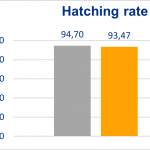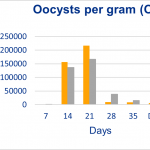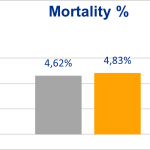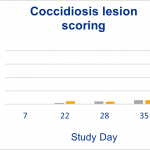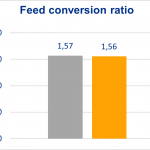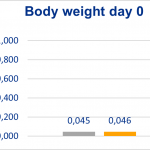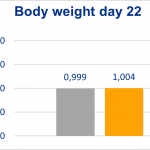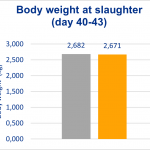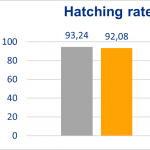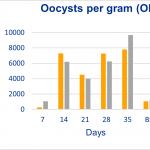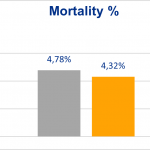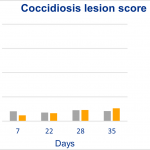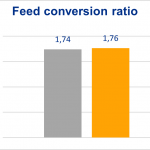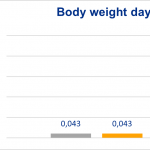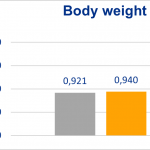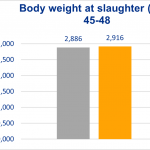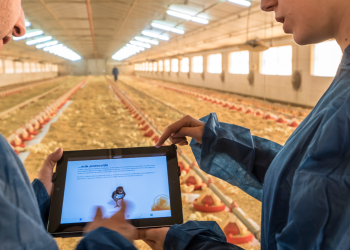A new coccidiosis vaccine for chickens has been launched in the market, being developed specifically developed for in-ovo administration, as indicated in the Part 1 of this publication, giving certain features for a proper control of coccidiosis in chickens. In this Part 2, the results in the field of this vaccine will be reviewed.
The objective of these experiences was to evaluate the efficacy of the protection against coccidiosis obtained after vaccination with the in-ovo vaccine against avian coccidiosis , in comparison with a vaccine against avian coccidiosis in broilers administered through coarse spray from HIPRA, widely and commonly used in the last years. The experiences comparing these two products were performed on farms in Belgium and Spain.
Coccidiosis Vaccination experience on Belgian farms
This study was carried out in 2019 on 3 farms, with a total of 220,000 chickens, half vaccinated with the in-ovo vaccine and the other half with the coarse spray vaccine.
In-ovo vaccination was performed with a device for conventional use and the percentage of eggs into which the in-ovo vaccine was injected into the amnion was evaluated, establishing an effectiveness rate of 80%.
The following graphs show a summary of the results obtained.
Coccidiosis Vaccination experience on Spanish farms
This study was carried out in 2020 on 3 farms, with a total of 144,000 chickens, half vaccinated with the in-ovo vaccine and the other half with the coarse spray vaccine.
In-ovo vaccination was performed with a device for conventional use and the percentage of eggs in which the in-ovo vaccine was injected into the amnion was evaluated, establishing an effectiveness rate of 98%. An immunocomplex vaccine against IBDV and a recombinant Marek disease vaccine were injected together with in-ovo vaccine against avian coccidiosis.
The following graphs show a summary of the results obtained.
In none of the parameters evaluated was there a statistically significant difference between the two vaccines, only minimal numerical differences.
In conclusion, these results show that protection through HIPRA’s new in-ovo coccidiosis vaccine for chickens, is just as effective as that obtained after vaccination using more traditional methods.
BIBLIOGRAPHY
- Jeffers TK. Attenuation of Eimeria tenella through selection for precociousness. J Parasitol. 1975 Dec;61(6):1083-90. PMID: 1195070.
- Porter, R. E., Jr. 1998. Bacterial enteritides of poultry. Poult. Sci. 77:1159–1165.
- Nakamura K, Isobe T, Narita M. Dual infections of Eimeria tenella and Escherichia coli in chickens. Res Vet Sci. 1990 Jul;49(1):125-6. PMID: 2143305.
- Takimoto H, Baba E, Fukata T, Arakawa A. Effects of infection of Eimeria tenella, E. acervulina, and E. maxima upon Salmonella typhimurium infection in chickens. Poult Sci. 1984 Mar;63(3):478-84. doi: 10.3382/ps.0630478. PMID: 6371754.

